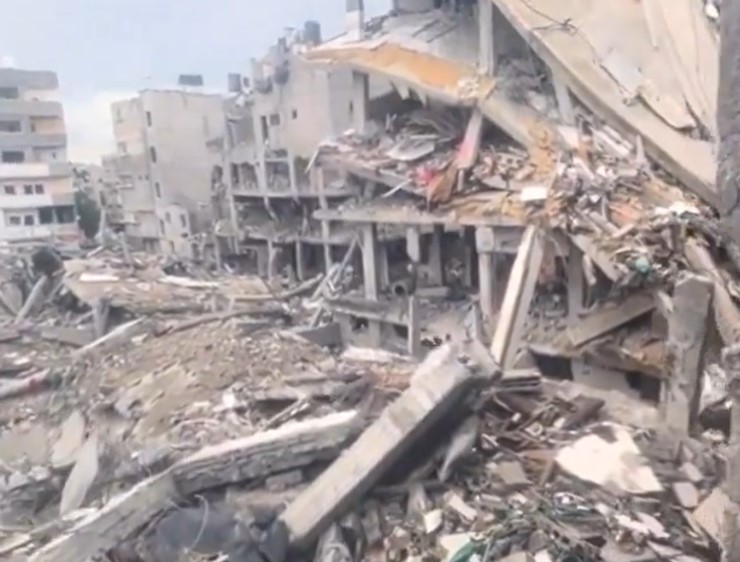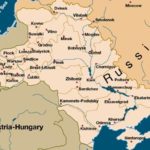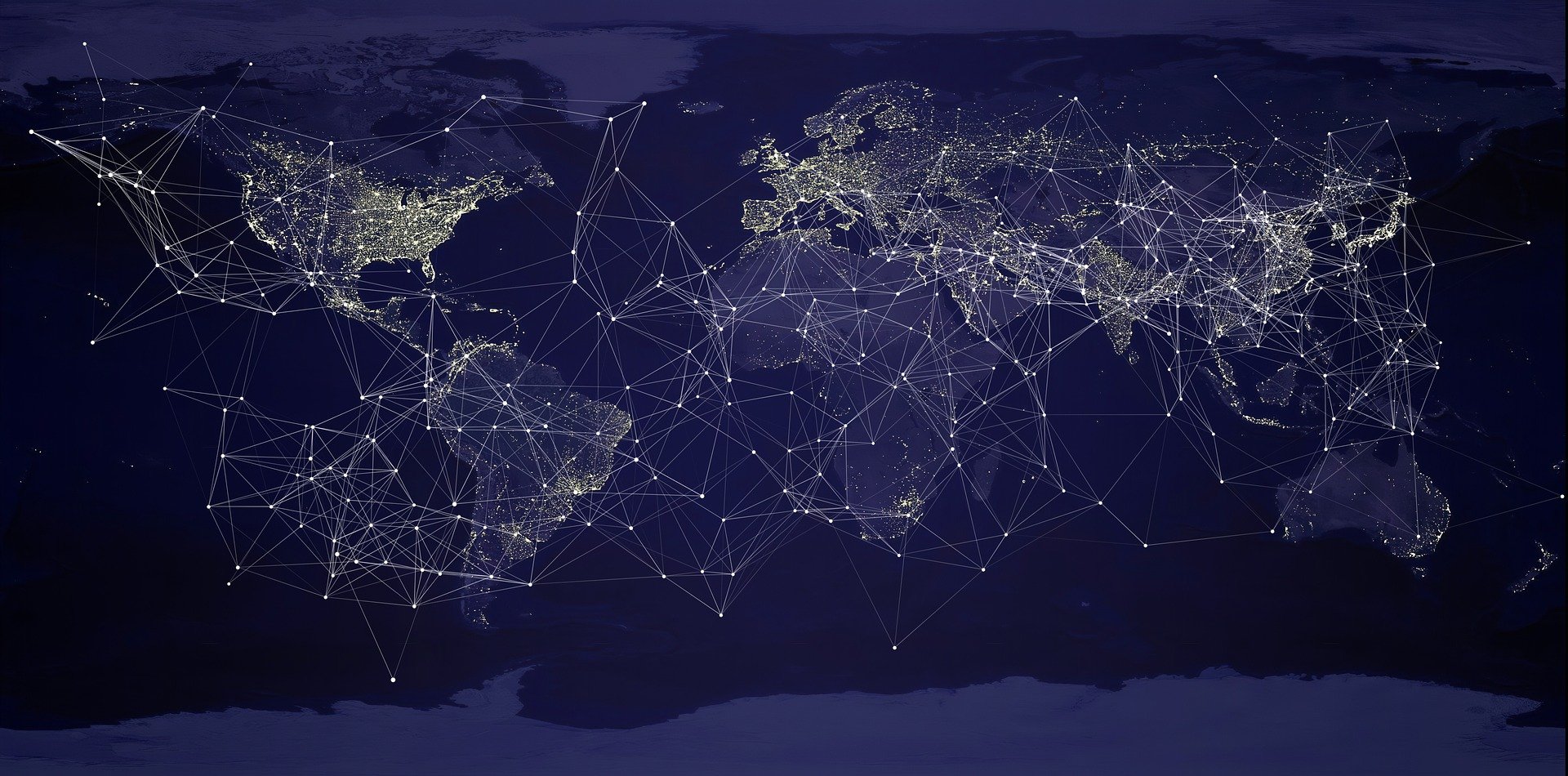 Israel’s ‘peace’ with Hezbollah solves nothing in Gaza
Israel’s ‘peace’ with Hezbollah solves nothing in GazaBy John Pickard
Having achieved a peace agreement in the war with Hezbollah – although it remains to be seen how long it will last, especially after Donald Trump’s inauguration – the Israeli state will now pay attention to its one-sided war on the population of Gaza.
The truce with Hezbollah is effectively an armed stand-off and it carries no long-term guarantee of peace and security for the population of Lebanon or northern Israel. The Israeli correspondents of the Financial Times hint at the truce being a set-back of sorts for Israel, given that Netanyahu and the Israeli right-wing wanted to completely smash Hezbollah. Now they have given up on that aim.
“Hizbollah is not Hamas. We cannot totally destroy it. It was not on the cards,” a former national security adviser to Netanyahu, Yaakov Amidror, told the Financial Times. “Lebanon is too big. Hizbollah is too strong.”
There were also other factors, according to Amidror, such as a “dwindling” of Israeli munition stockpiles and the exhaustion of military reservists who have been fighting a war for fourteen months. “Israel cannot afford another year of war” at its current scale in the north, Amidror argued.
But switching attention back to Gaza does not make Netanyahu’s position any easier. The problem for the Israeli state, even with Trump in the White House after January, is that there is no long-term plan for Gaza, at least no plan that would have a consensus of support, either in the Israeli government or internationally, espcially among Arab states.
The far right in Israel openly campaign for Jewish settlements in Gaza and for that strip of land to be incorporated into Greater Israel, along with the West Bank. The problem for Netanyahu and the right, however, is the presence of millions of Palestinians who are not going to go anywhere willingly.
Israeli has, as it were, achieved the first step in this process of creating a Greater Israel – they have used their military might to reduce Gaza to rubble. They threaten to do the same to the Palestinian cities on the West Bank. But that is the ‘easy’ part: moving out five or six million Arabs is another matter entirely and that poses an insoluble problem for the zionist state .
Gaza Strip has been made uninhabitable
Gaza has indeed been reduced to ruins. The so-called Israeli ‘Defence’ Force has followed a deliberate policy of making the Gaza Strip uninhabitable. Any semblance of civilian infrastructure – roads, electricity generation, water treatment plants, schools, universities, clinics, hopitals, water towers, farms, orchards, etc, etc – have been systematically destroyed with high explosives, although they had no military or strategic value. It has left the population of Gaza, which is still considerable, despite around 45,000 having been killed, without any means of living a normal life, even were the bombing to end.
The population of Gaza are now utterly reliant on humanitarian aid for water, shelter and food, and the IDF are strictly rationing what access they have to them. It is no wonder that this military ‘victory’ – if such a one-sided conflict against a civilian population can be called such – has been branded by international legal and humanitarian organisations as genocide.
To reinforce his position at home, Netanyahu has banned the Al Jazeera news network from Israel. A part of the extreme right – and there are examples of these in most of the advanced capitalist countries – revels in the destruction and death visited on the Arabs of Palestine. We saw how the thuggish ‘fans’ of the Maccabi Tel Aviv football club chanted their glee at the killing of Palestinian children in Gaza, both in Amsterdam and on their return to Israel.
But this is not the view of the entire Jewish population of israel – and it would be a mistake to think so – much less the rest of the world. If Netanyahu has banned Al Jazeera, it is because he is afraid that their coverage of the savagery of the IDF would discomfort a lot of Israelis – and indeed it would. A part of the israeli political right is now calling for the banning of Haaretz, a liberal newspaper with a maximum circulation of 100,000. In this newspaper there are opinion columns and stories that make uncomfortable reading for many Israeli Jews.
Jabalya refugee camp in Gaza has been ‘totally destroyed’
This week, for example, Haaretz carried a report on the destruction of the Jabalya refugee camp in northern Gaza. The article is behind a paywall, but the gist can be read even in the opening sentences. “The refugee camp”, Haaretz reports, “thought to be Gaza’s largest has been almost totally destroyed by Israeli military activity, recently published satellite photos of Jabalya showed.
“The photos indicate that the area, where more than 116,000 refugees lived in very crowded conditions, is no longer habitable, showing tens of thousands of homes destroyed or heavily damaged and essential infrastructure in ruins. Meanwhile, the humanitarian situation in the refugee camp located in northern Gaza continues to deteriorate”.
This kind of news and this coverage has an effect on some Jewish workers. It may be a minority at this point, even a small minority, but it would be wrong to imagine that it is not important. Why else would Netanyahu and the Israeli right want to ban Haaretz?
Bombings and killings continue on a daily basis
The bombing and mayhem in Gaza is continuing, and on a daily basis there are reports of deaths and injuries by the dozen and more. It is often schools, hospitals and other places of shelter that are being bombed. Alongside this, the humanitarian crisis worsens, as winter rains and cold affect the hundreds of thousands who are sheltering as best they can in make-shift camps and tents.
If the reports in Haaretz are unsettling the Israeli establishment, it is nothing to the effects that channels like Al Jazeera have on the populations of the Arab and Muslim world. The merciless destruction of Gaza and the killing of tens of thousands – 70% of them women and children – have provoked the biggest series of demonstrations on one single issue, involving tens of millions of workers across the globe, in the whole of modern history. The appalling human tragedy for Palestine is mirrored by the biggest political and diplomatic defeat for Israel in the history of the state.
However, the most important force that has yet to find its voice is that of the Arab working class, particularly in nearby countries like Egypt and Jordan. In Egypt after 2011, there was not one but two huge revolutionary upsurges, each involving millions of workers and youth.
Across the whole Arab world, workers and youth will have witnessed the carnage in Gaza over the past fourteen months. It is only the repression by the Arab governments – fearful of a new Arab Spring – that has prevented mass expressions of solidarity with Palestine like those in Europe and the USA.
The fear among Arab rulers and Western politicians in general is that Netanyahu’s “forever war” threatens the regional stability upon which Western economic and strategic interests depend. It is not ruled out that the present grumbles and murmurs of discontent among Arab populations, unhappy with the inaction of their own governments over Gaza, will become loud and angry cries of outrage. If that were to happen, it would radically transform the whole situation in the region, and it would be far more decisive than Israel’s temporary peace with Hezbollah.
 Muammar Gaddafi – 10 years since his death - By Dave Cartwright 10 years ago on 20 October 2011, Muammar Gaddafi was captured in his home town of Sirte in northern Libya fleeing from
Muammar Gaddafi – 10 years since his death - By Dave Cartwright 10 years ago on 20 October 2011, Muammar Gaddafi was captured in his home town of Sirte in northern Libya fleeing from US: organised labour rank and file pushes back - Winter of discontent in USA. How far will it go? By Richard Mellor in California A powerful reminder of how important the 14 million members
US: organised labour rank and file pushes back - Winter of discontent in USA. How far will it go? By Richard Mellor in California A powerful reminder of how important the 14 million members The historic failure of Austro-Marxism and the fall of Red Vienna - By Cain O’Mahony Just over ninety years ago, in September 1931, a self-appointed despot, Walter Pfrimer, attempted an Austrian version of Mussolini’s March on Rome.
The historic failure of Austro-Marxism and the fall of Red Vienna - By Cain O’Mahony Just over ninety years ago, in September 1931, a self-appointed despot, Walter Pfrimer, attempted an Austrian version of Mussolini’s March on Rome. Stagflation: a demand or supply side story? - By Michael Roberts The semi-annual meetings of the IMF and World Bank start today where finance ministers and central bankers will meet in a slimmed-down
Stagflation: a demand or supply side story? - By Michael Roberts The semi-annual meetings of the IMF and World Bank start today where finance ministers and central bankers will meet in a slimmed-down Book Review: Antisemitism and the Russian Revolution – by Brendan McGeever - By Ray Goodspeed (Leyton and Wanstead CLP) Antisemitism and the Russian Revolution (Cambridge University Press, 2019), drawing on the author’s own research, is an investigation
Book Review: Antisemitism and the Russian Revolution – by Brendan McGeever - By Ray Goodspeed (Leyton and Wanstead CLP) Antisemitism and the Russian Revolution (Cambridge University Press, 2019), drawing on the author’s own research, is an investigation

